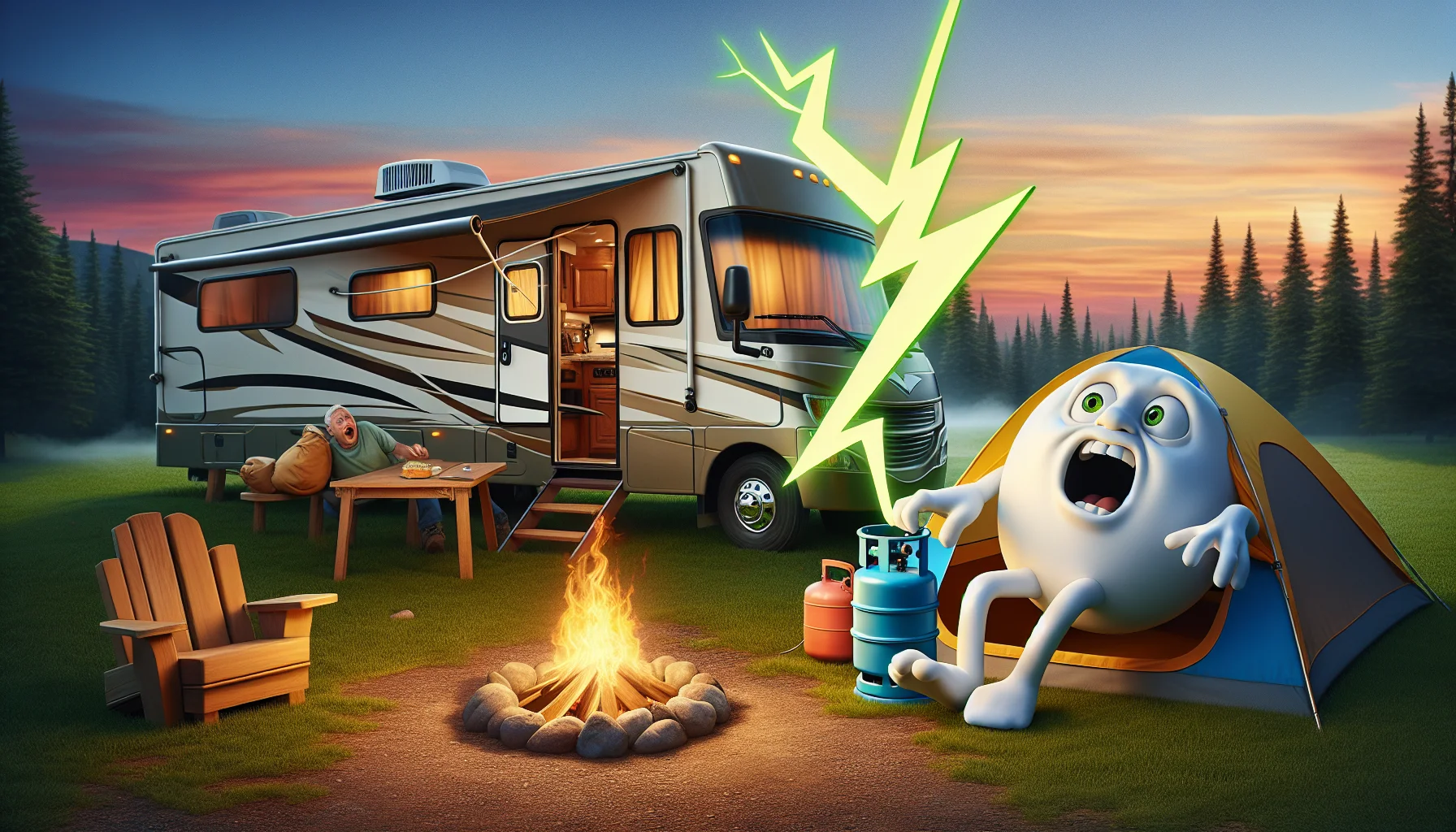Propane generator rv Quiz
Test Your Knowledge
Question of
The Essentials of Propane Generators for RVs
Propane generators play a crucial role in powering recreational vehicles, offering a reliable source of electricity while on the move. These generators are highly valued for their efficiency and eco-friendliness, providing RV enthusiasts with the comfort and convenience of home amenities, regardless of their location. With the ability to support everything from lighting and refrigeration to air conditioning and entertainment systems, propane generators ensure that travelers can enjoy the great outdoors without sacrificing the luxuries of modern living.
How Propane Generators Work
Propane generators operate on the simple principle of converting propane fuel into electrical energy, making them an efficient power source for recreational vehicles (RVs). When the generator is started, the propane is drawn from the connected tank and mixed with air. This mixture is then ignited in the combustion chamber, producing energy. This mechanical energy is converted into electrical energy through an alternator. The generated electricity is then available to power various appliances and systems within the RV, ensuring comfort and convenience for users even in remote locations. Propane generators are particularly valued for their clean-burning properties, efficiency, and the ability to store propane fuel for extended periods without degradation.
Benefits of Using a Propane Generator for Your RV
- Fuel Efficiency: Propane generators consume less fuel compared to their gasoline counterparts, making them a cost-effective solution for long trips.
- Environmental Friendliness: Propane burns cleaner than gasoline or diesel, producing fewer greenhouse gases and contributing to a healthier environment.
- Quiet Operation: Propane generators typically operate at a lower noise level, ensuring a more peaceful and enjoyable camping experience.
Selecting the Right Propane Generator for Your RV
When it comes to choosing the right propane generator for your RV, there are several key factors to consider to ensure you make the best decision for your needs. First and foremost, consider your power needs. Assess the total wattage of the appliances and devices you plan to run simultaneously to determine the generator's required power output. Next, size is an important consideration. You'll want a generator that fits well within the space constraints of your RV without sacrificing power. Lastly, portability can be a crucial factor, especially if you plan to use the generator in various locations. Look for models that are easy to move and set up, ensuring you can enjoy the convenience of your propane generator wherever you go.
Installation and Maintenance Tips
Safe Installation Steps for a Propane Generator in an RV
- Select a suitable location for the generator that is away from living areas and has proper ventilation to prevent gas and exhaust fumes from entering the RV.
- Ensure the generator is placed on a stable, flat surface to minimize vibration and noise.
- Install a carbon monoxide detector inside the RV to monitor levels and ensure safety.
- Connect the propane tank to the generator using a high-quality, leak-proof hose and secure all connections tightly.
- Check local regulations and codes to ensure compliance with installation standards and safety requirements.
- Test the generator before use to ensure it operates correctly and efficiently.
Maintenance Tips for Efficient Operation
- Regularly check and replace the air filter to ensure optimal air flow and generator efficiency.
- Inspect the propane hose and connections for leaks or damage monthly and replace if necessary.
- Change the oil according to the manufacturer's guidelines, typically after the first 20-30 hours of use and every 100 hours thereafter.
- Run the generator at least once a month for about 30 minutes to keep the engine lubricated and to prevent moisture build-up.
- Keep the generator and surrounding area clean from debris and dirt to prevent overheating and ensure proper ventilation.
- Consult the owner's manual for specific maintenance routines and adhere to the manufacturer's recommendations.
Top Propane Generators for RVs in 2023
| Model | Power Output | Weight | Noise Level |
|---|---|---|---|
| Champion 3400-Watt Dual Fuel RV Ready | 3400W | 95.7 lbs | 59 dB |
| Westinghouse WGen3600DF | 3600W | 109 lbs | 68 dB |
| Sportsman GEN4000LP | 4000W | 90 lbs | 69 dB |
| DuroMax XP4400EH Dual Fuel | 4400W | 120 lbs | 69 dB |
| Firman H03652 Hybrid Series 3650 Watt | 3650W | 112 lbs | 67 dB |
Safety Precautions When Using Propane Generators
When operating propane generators, especially in recreational vehicles (RVs), it's crucial to adhere to specific safety measures to prevent accidents and ensure a safe environment. Always ensure the generator is placed in a well-ventilated area to prevent the accumulation of propane gas, which can be highly flammable and dangerous. Regularly inspect the generator and propane tanks for leaks or damage, and repair any issues immediately. Keep the generator dry and away from water to prevent electrical hazards. Never refuel the generator while it is running; always turn it off and let it cool down first. It is also important to install carbon monoxide detectors inside the RV to monitor for any harmful gas buildups. Following these safety tips can help avoid potential hazards and maintain a safe and enjoyable experience while using propane generators in RVs.












